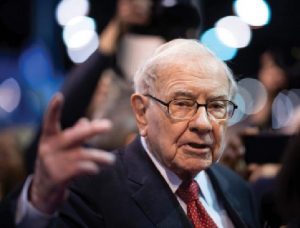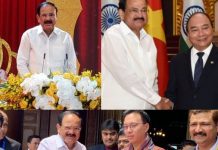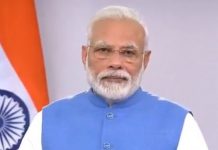 Can the current uncertain future prove to be a blessing in disguise? Howard Stanley Marks, co-chairman of multibillion-dollar asset management firm Oaktree Capital thinks so! He is touted as the largest investor in distressed securities worldwide. In 2019, with a net worth of $2.2 billion. Marks was ranked 370th on the Forbes 400 rankings of the wealthiest Americans.
Can the current uncertain future prove to be a blessing in disguise? Howard Stanley Marks, co-chairman of multibillion-dollar asset management firm Oaktree Capital thinks so! He is touted as the largest investor in distressed securities worldwide. In 2019, with a net worth of $2.2 billion. Marks was ranked 370th on the Forbes 400 rankings of the wealthiest Americans.
In one of his recent “memos”, Marks says, “Worries about an uncertain future help sharpen the focus and “Investing scared will push you to go thorough due diligence, employ conservative assumptions, insist on an ample margin of safety in case things go wrong, and make you invest only when the potential return is at least commensurate with the risk. Investing scared will result in making fewer mistakes.”
Greedy, when others are fearful
His advice echoes the thoughts of another legendary investor, Warren Buffett, who famously said one needs to be greedy when others are fearful, and fearful when others are greedy. In his memo, Marks quoted many, from George Orwell, Lao Tzu, Albert Einstein to Warren Buffett, to prove his point that predicting future was difficult, if not futile.
While in his latest memo, on May 11, Marks has reiterated the theme of “uncertainty” and said the challenge lay in trying to be above average in assessing the future. In his April memo, billionaire investor Howard Marks said there was a cloud of uncertainty everywhere and uncertainty was much greater than usual.
Uncertain economics
In the memo, titled “Uncertainty,” he says, “As everyone knows, today we’re experiencing unprecedented (or at least highly exceptional) developments in four areas: the pandemic, the economic contraction, the oil price collapse and the government response.
Thus a number of considerations make the future particularly unpredictable.” The field of economics is muddled and imprecise, and there’s good reason it’s called “the dismal science.” Unlike a “real” science like physics, in economics there are no rules that one can count on to consistently produce a given outcome, as in “if a, then b.”
There are only patterns that tend to repeat, and while they may be historical, logical and often-observed, they’re still only tendencies. Because of the imprecision of economics, there certainly are no facts about the economic future. Economists and investors make inferences from past patterns, but these are unreliable at best, and I think in many cases their judgments fall under the heading of “guesses.”
While unique developments like those of today make forecasting unusually difficult, the presence of all four elements at once probably renders it impossible. In addition to the difficulty of understanding each of the four individually, we can’t be sure how they’ll interact. Will the massive, multi-faceted Treasury program of loans, grants, stimulus and bond buying be sufficient to offset the unparalleled damage done to the economy by the fight against Covid-19? To what extent will the reopening bring back economic activity, and to what extent will that cause the spread of the disease to resume, and the renewal of lock-downs?
Questions galore?
For investors, the future is determined by thousands of factors and think about all the questions surrounding it like: How many people have it, including those who are asymptomatic? How likely is contact with someone who’s infected to create another case? To what degree will distancing and masks deter its spread? Will the cases be severe, mild or asymptomatic? Why? Will the supply of protective gear for medical personnel, hospital beds and ventilators be adequate? Will a treatment be developed?
To what extent will it speed recovery and prevent fatalities? What will the fatality rate be relative to age, gender and pre-existing conditions? Will the impact of the disease on young people worsen? Will people who’ve had it and recovered be immune? Will their immunity be permanent? Will the virus mutate, and will immunity cover the new forms?
Will it be possible to inject antibodies to prevent infection? How many people have to be immune for herd immunity to effectively stop the further spread? Will social distancing delay the achievement of herd immunity? Will a vaccine be invented? When? How long will it take to produce and deliver the needed doses? How many people will refuse to be vaccinated? With what effect? Will vaccination have to be renewed annually? Will the virus succumb to warm weather and humidity? Will the virus be with us permanently, and will it be controllable like “just another seasonal disease”?
It would take an exceptional mind to deal with all these factors simultaneously and reach a better conclusion than most other people. The challenge lies in trying to be above average in assessing the future. Forecasting is a competitive arena. In addition, since economics is imprecise, unscientific and inconsistent in its functioning, as described above, there can’t be a method or process for forecasting that works consistently. No one can succeed in predicting things that are heavily influenced by randomness and otherwise inconsistent.
As a matter of fact, in a side-by-side comparison of many economic forecasts, even similar assumptions drive very different outcomes on how this crisis will play out. This may be a case of the “Anna Karenina principle” coined by Professor Yossi Sheffi at Massachusetts Institute of Technology. Paraphrasing Tolstoy, while happy economies are all alike, every unhappy economy is unhappy in its own way. Since there were unprecedented developments, it wasn’t possible to say if there would be a V-shaped or U-shaped or L-shaped recovery. He points out, “If you have never experienced something before, you can’t say you know how it is going to turn out”.
He finds a conundrum and says that “Investing is the art of positioning capital so as to profit from future developments. Most professional investors strive for above average returns. However, according to the above logic, macro forecasts shouldn’t be expected to lead to above average returns. Yet very few people are content to invest while practicing agnosticism with regard to the macro future. They may on some level understand the difficulty entailed in forecasting, but their reluctance to admit their ignorance of the future usually overcomes that understanding with ease. And so they keep trying to predict future events – and the investment industry produces a large volume of forecasts.
Depart from crowd
The billionaire’s memo says, “To do better than most, you have to depart from the crowd. All great investments begin in discomfort, since things everyone likes and feels good about are unlikely to be on the bargain counter. But to invest in things that are out of favour — at the risk of standing out from the crowd and appearing to have made a big mistake –takes confidence and resolve.”
letters@tehelka.com










